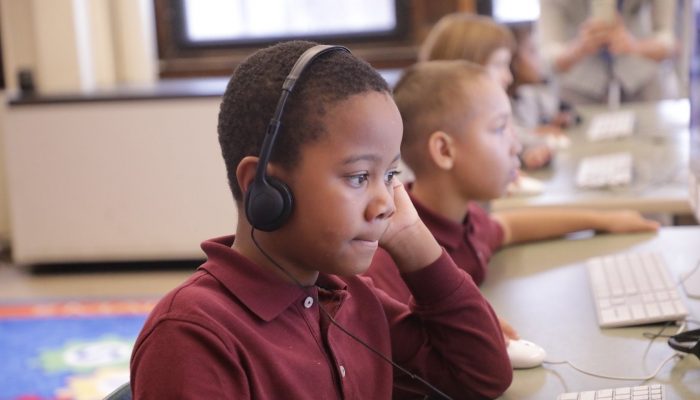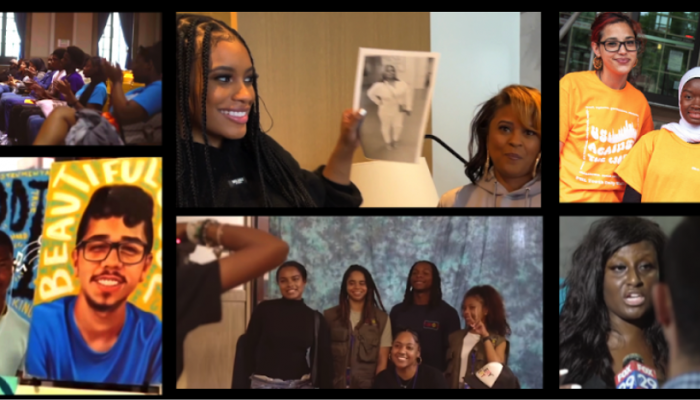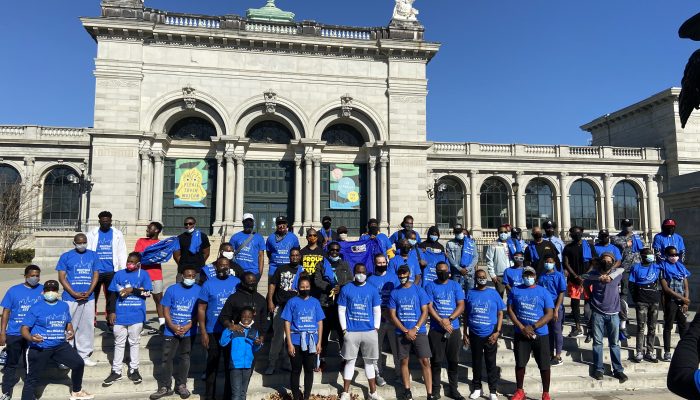This post was written by Eric Westbrook, Director of the Mayor’s Office of Black Male Engagement.
It’s been more than four months since our schools were closed in response to the health crisis of COVID-19. From primary to post-secondary, schools all over Pennsylvania had to rethink how they engaged their students. Thousands of students were forced to adjust to virtual education and this exposed the ever-widening digital divide in the Black community. Thousands of Black households faced the harsh reality of their children being home all day without access to the internet to continue their education.
These educational disparities did not suddenly manifest this year, but they have been one of the ongoing challenges in our community, and we, at the Office of Black Male Engagement are working to close those gaps for Black men and boys. It is our hope that you use this post as a resource tool to stay informed and share.
The School District of Philadelphia has been working with public health experts and other leaders from across the city, state and country and recently announced their plans to reopen this fall. The school year will start on Wednesday, September 2, 2020, allowing extra time for teachers to deepen their skills to provide students with engaging digital instruction. Schools will start the school year with all students learning remotely for the first marking period which ends November 17. Students will then transition to the hybrid learning model, which is a mix of in-person and digital learning, as long as guidance from the Philadelphia Department of Public Health and other indicators support that it is safe to do so. A 100% digital learning option will still be available at that time, and they will continue to explore opportunities for students to be taught by teachers from their enrolled school. PreK students in District PreK programs will also receive digital instruction five days per week through the first marking period.
You can learn more about the District’s reopening plan and provide feedback on their Advancing Education Safely page. This past spring, every student was offered a Chromebook laptop in order to access their schoolwork. If your student has not received their Chromebook, please visit the Chromebook Loaner Page and here are some digital resources and tips for virtual learning.
Technology and digital assistance will be essential for families this fall as the digital divide has only widened during COVID-19. Digital Literacy Alliance launched a fast-track grant cycle in April in response to the digital needs that arose from the COVID-19 pandemic. This grant was awarded to three community organizations to hire help staff called Digital Navigators to ensure that residents can access affordable internet and technology needs. Here are the organizations and their information below:
Community Learning Center (CLC)
Helpline: 215-426-7940
Email: info@communitylearningcenter.com
Digital Navigator Webpage: https://communitylearningcenter.org/digital-navigators/
The ExCITe Center at Drexel University
Helpline: 1-267-217-3508
Email: navigator@excitecenter.org
Digital Navigator Webpage: https://drexel.edu/excite/engagement/digital-navigators/
SEAMAAC
Helpline: 215-867-9732
Email: digital@seamaac.org
Digital Navigator Webpage: https://seamaac.org/digital-navigation/
**Live chat translation is available in Spanish. Interpreters are also available for most languages on helpline calls. When leaving a message, callers must include a request to be called back in their preferred language.
PHL ConnectED
The City of Philadelphia and School District of Philadelphia also announced PHLConnectED, a new collaboration to connect up to 35,000 low-income K-12 student households with internet service and devices. The program, which will also provide digital skills training and tech support for families, is an urgent response to schools moving to virtual learning in the upcoming academic year as a result of the global COVID-19 pandemic. Learn more.
Black Education and the Effects of COVID-19 Panel Discussion
On July 16, the Mayor’s Commission on African American Males hosted its fourth COVID-19 panel discussion – Black Education and the Effects of COVID-19. This discussion was about the importance of equitably addressing the needs of Black students during and beyond COVID-19.
This electric discussion focused on the need for more Black male teachers in the classroom as well as the District’s efforts to partner with Internet providers to ensure that every student can access their academic instruction digitally. This discussion also highlighted the necessary partnerships between the colleges and universities and K-12 in order to equip teachers with the unique set of skills needed to teach in our communities, as well as broaden the pathways for Black male students to go into teaching as a career. Several student support services on college campuses were mentioned in order to encourage more Black teachers in Philadelphia.
Community College of Philadelphia’s Center for Male Engagement was mentioned as a powerful resource for assisting Black male students towards their goals in education. School District teacher and panelist, Quamiir Trice, was an avid member of the Center for Male Engagement before transferring to Howard University to complete his Bachelor’s degree. He eventually came back to his hometown of Philadelphia to give back to the city that helped him accomplish his dream of becoming a teacher. “I had the opportunity to teach where I completed my degree but I wanted to be an inspiration in my own city like so many were for me,” said Trice.
The school year will be here before we know it and while it may not be ideal for any of us it is our strong desire that Black men and boys are prepared and equipped with everything they need to reach their fullest potential.
You can check out all of our COVID-19 Panel Discussions on our new Facebook page and follow us on Instagram @OBMEPHL. Please stay safe and cool!




